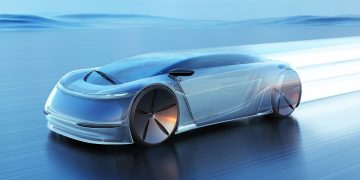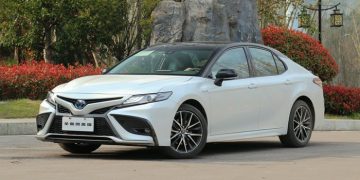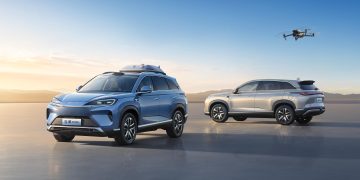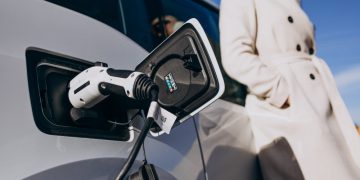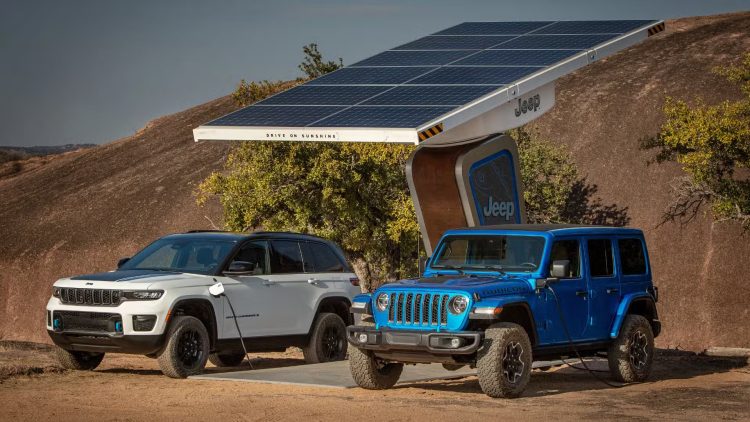The 2035 ban on new petrol and diesel car sales is one of the most ambitious and game-changing policies aimed at reducing carbon emissions, improving air quality, and accelerating the transition to sustainable transportation. Several countries and regions have committed to this transition, marking a significant shift in the automotive industry. The electric vehicle (EV) industry is poised to play a central role in this transition, but there are questions about whether it is ready to handle the challenges and opportunities that the 2035 ban will present. This article explores the potential effects of this policy on the electric vehicle industry, the readiness of automakers, governments, and consumers for the upcoming shift, and how the policy will influence the global automotive market.
1. The 2035 Ban on Petrol and Diesel Cars: An Overview
In response to growing concerns about climate change, air pollution, and the need to reduce greenhouse gas emissions, many countries have set ambitious targets to phase out the sale of new petrol and diesel cars by 2035. The European Union, the United Kingdom, and several other nations, including California in the United States, have outlined plans to implement such a ban in the next decade. This policy is designed to accelerate the adoption of electric vehicles and contribute to the global goal of achieving net-zero emissions by mid-century.
The ban is part of broader efforts to reduce carbon dioxide (CO2) emissions, a major driver of climate change, as well as other harmful pollutants like nitrogen oxides (NOx) and particulate matter (PM), which are associated with the internal combustion engines of traditional petrol and diesel cars. As such, the 2035 ban is seen as a key policy tool in reducing both air pollution and global warming.
2. Impacts on the Electric Vehicle Industry
2.1. Increased Demand for Electric Vehicles
One of the most immediate and significant impacts of the 2035 ban on petrol and diesel cars will be a surge in demand for electric vehicles. As consumers and automakers anticipate the gradual phase-out of traditional combustion engines, the demand for EVs is expected to increase. Many consumers will be incentivized to purchase electric vehicles ahead of the ban to avoid potential restrictions on the sale and use of petrol and diesel vehicles in the coming years.
Automakers will be forced to accelerate production and expand their electric vehicle portfolios to meet growing demand. The transition from petrol and diesel cars to electric vehicles will require a shift in manufacturing capabilities, supply chains, and technological innovation. The EV industry will see both opportunities and challenges as it gears up to meet this demand.
2.2. Challenges in Meeting Demand
While the 2035 ban will drive demand for electric vehicles, it also poses significant challenges for the EV industry. The most pressing concern is the supply chain for key components such as lithium-ion batteries, electric motors, and charging infrastructure. To meet the demand for millions of new electric vehicles by 2035, the industry must overcome potential bottlenecks in these areas.
The battery supply chain, in particular, will be critical to the success of the EV transition. Battery production must be scaled up substantially, and efforts to reduce the environmental impact of mining for raw materials like lithium, cobalt, and nickel will need to be intensified. Additionally, recycling technologies for EV batteries will become increasingly important as the first generation of electric vehicles reaches the end of their lifecycle.
2.3. Technological Innovation and Advancements
To keep pace with the 2035 ban, the electric vehicle industry must continue to innovate and improve upon existing EV technologies. Battery technology, which is arguably the most critical element of EVs, will need to see significant advancements. Higher energy density, faster charging times, and longer battery life will be essential to making EVs more attractive to consumers, especially in markets with long travel distances.
Furthermore, charging infrastructure will need to be expanded rapidly. Governments, automakers, and energy providers must invest heavily in creating a robust charging network that ensures convenience for EV owners. Public charging stations will need to be easily accessible, fast, and widely distributed to prevent range anxiety and ensure that EV adoption is feasible on a large scale.
2.4. Increased Competition and Market Entry
As the 2035 deadline approaches, the electric vehicle market will likely see an influx of new entrants, including traditional automakers shifting their focus to EV production and new EV manufacturers entering the market. Established automakers like Volkswagen, General Motors, and Ford have already committed to transitioning to electric vehicles and are investing heavily in electric mobility. At the same time, newcomers like Tesla, Rivian, and Lucid Motors are poised to challenge legacy automakers with cutting-edge EV technologies and innovations.
This increased competition will drive technological advancements, lower prices, and enhance consumer choice. The electric vehicle market will become more diverse, with a wider range of affordable and premium options available to meet the needs of different consumers.

3. Policy Support and Financial Incentives
3.1. Government Incentives for EV Purchases
To facilitate the transition to electric vehicles, many governments are offering financial incentives to consumers and automakers. These incentives include tax credits, subsidies, and grants for purchasing electric vehicles, as well as funding for the development of charging infrastructure.
For example, the United States offers federal tax credits of up to $7,500 for the purchase of new electric vehicles, while several European countries provide similar subsidies and exemptions from vehicle registration taxes and congestion charges. These incentives reduce the upfront cost of electric vehicles, making them more accessible to a broader range of consumers.
Additionally, the 2035 ban itself is a strong policy signal that encourages consumers and businesses to invest in electric vehicles. The anticipation of stricter regulations and the eventual end of petrol and diesel car sales will push consumers to prioritize EVs over traditional vehicles, further driving adoption rates.
3.2. ZEV Mandates and Emission Regulations
In addition to the 2035 ban, governments are implementing zero-emission vehicle (ZEV) mandates that require automakers to produce a certain percentage of electric vehicles within their overall fleet. These mandates are a direct response to the need to reduce carbon emissions from the transportation sector and can significantly influence automaker strategies.
Countries like California and the European Union have already implemented ZEV mandates, with strict penalties for automakers who fail to meet production targets for electric vehicles. These policies provide additional pressure on manufacturers to ramp up their EV production and push the industry toward a more sustainable future.
3.3. Long-Term Policy Goals and Carbon Pricing
In the lead-up to 2035, long-term policy goals such as carbon pricing and emission trading schemes will play an important role in shaping the trajectory of the EV industry. By pricing carbon emissions, governments can create a financial incentive for consumers and businesses to shift toward cleaner energy sources. This, in turn, will increase demand for electric vehicles, which have a lower carbon footprint compared to traditional petrol and diesel cars.
The growing emphasis on green policies at the national and international levels, including global climate agreements, will further accelerate the adoption of electric vehicles and support the automotive industry’s transition to zero-emission technologies.
4. The Role of Infrastructure in Supporting EV Adoption
4.1. EV Charging Networks
A critical factor in the success of the 2035 ban will be the availability of adequate charging infrastructure. As the number of electric vehicles on the road increases, the demand for fast, accessible, and reliable charging stations will grow significantly. Governments, automakers, and private companies will need to invest heavily in expanding and improving charging networks to ensure that EV owners can conveniently charge their vehicles at home, at work, and in public spaces.
4.2. Electric Grid Capacity and Renewable Energy Integration
The growth of electric vehicles will place increased demand on national electric grids, which must be capable of supporting large-scale EV adoption. The development of smart grids and the integration of renewable energy sources such as solar and wind will be essential to ensuring that EVs are charged sustainably. By using green electricity to power EVs, we can reduce the carbon footprint of electric vehicles even further.
5. Consumer Adoption: Barriers and Solutions
5.1. Cost Concerns
While the 2035 ban will drive demand for electric vehicles, some consumers may still face barriers to adoption, particularly in terms of purchase price. Although the cost of EVs has been falling, they remain more expensive than traditional petrol and diesel vehicles. Continued government subsidies, technological advancements, and economies of scale will be necessary to make EVs affordable for all consumers.
5.2. Range Anxiety and Charging Availability
Range anxiety, or the fear that an EV will run out of battery before reaching a charging station, is a common concern among potential EV buyers. The expansion of fast-charging infrastructure and the development of longer-range vehicles will help address this issue, making EVs a more practical option for a wider range of consumers.
6. Conclusion: The Road to 2035 and Beyond
The 2035 ban on new petrol and diesel cars will undoubtedly have a profound impact on the electric vehicle industry. While the transition presents challenges, including supply chain issues, technological innovation, and infrastructure development, it also creates significant opportunities for growth, competition, and sustainability. The EV industry is poised to play a critical role in achieving global climate goals and transforming the automotive sector into a cleaner, more sustainable industry.
With continued policy support, technological advancements, and growing consumer demand, the electric vehicle industry is well-positioned to rise to the challenge and meet the ambitious targets set for 2035. By embracing the transition to electric mobility, governments, automakers, and consumers can contribute to a cleaner, greener, and more sustainable future.



